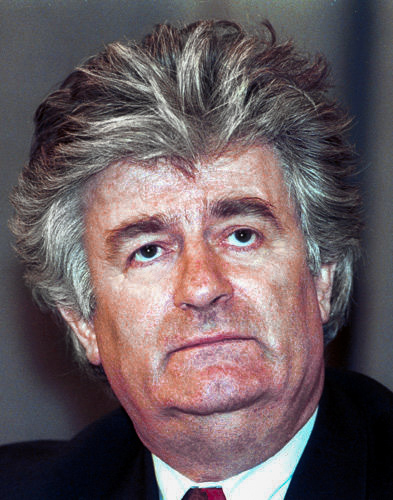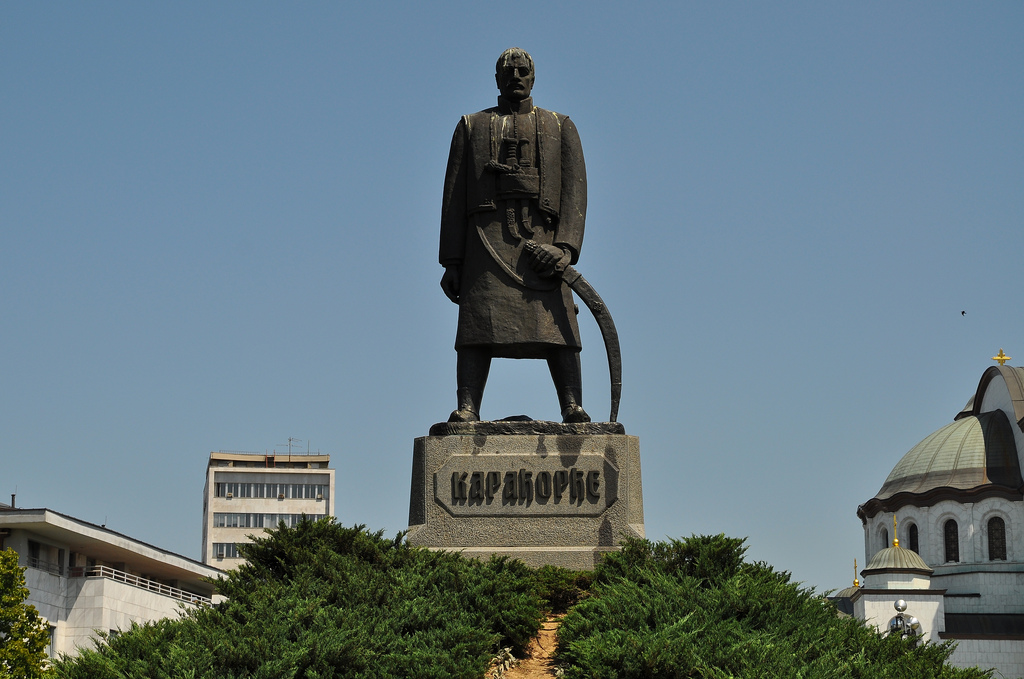|
Milorad Ekmečić
Milorad Ekmečić ( sh-Cyrl, Милорад Екмечић; 4 October 1928 – 29 August 2015) was a Yugoslav and Serbian historian. During World War II he became a member of the Yugoslav Partisans after the fascist Ustaše perpetrated the Prebilovci massacre, in which 78 members of his family were killed, including his father. He studied at the University of Zagreb and went on to be a professor at the University of Sarajevo, and later at the University of Belgrade. He was a member of several Yugoslav academies of sciences and arts, the author of more than a dozen historical books, and received several significant national awards. Ekmečić authored several important works in socialist Yugoslavia, including his contribution to the acclaimed ''History of Yugoslavia'' published in English in 1974, and ''Stvaranje Jugoslavije 1790–1918 reation of Yugoslavia 1790–1918' in 1989. He adopted Serbian nationalist views significantly during the breakup of Yugoslavia, served as an a ... [...More Info...] [...Related Items...] OR: [Wikipedia] [Google] [Baidu] |
University Of Zagreb
The University of Zagreb ( hr, Sveučilište u Zagrebu, ; la, Universitas Studiorum Zagrabiensis) is the largest Croatian university and the oldest continuously operating university in the area covering Central Europe south of Vienna and all of Southeastern Europe. The University of Zagreb and the University North are the only public universities operating in Northern and Central Croatia. The history of the University began on September 23, 1669, when the Holy Roman Emperor Leopold I issued a decree granting the establishment of the ''Jesuit Academy of the Royal Free City of Zagreb''. The decree was accepted at the Council of the Croatian Kingdom on November 3, 1671. The Academy was run by the Jesuits for more than a century until the order was dissolved by Pope Clement XIV in 1773. In 1776, Empress Maria Theresa issued a decree founding the ''Royal Academy of Science'' which succeeded the previous Jesuit Academy. Bishop Josip Juraj Strossmayer proposed the founding of a Univ ... [...More Info...] [...Related Items...] OR: [Wikipedia] [Google] [Baidu] |
Serbian Historiography
Serbian historiography ( sr-Cyrl, српска историографија, srpska istoriografija) refers to the historiography (methodology of history studies) of the Serb people since the founding of Serbian statehood. The development can be divided into four main stages: traditional historiography, Ruvarac's critical school, Communist–Marxist legacy, and the renewed Serbian national movement. Medieval Serbian historiography Modern Serbian historiography Jovan Rajić (1726–1801) was the forerunner to modern Serbian historiography, and has been compared to the importance of Nikolay Karamzin to Russian historiography. The foundations of Serbian ecclesiastical historiography were laid by Bishop Nikodim Milaš (1845–1915). Ilarion Ruvarac (1832–1905) is regarded the founder of the critical school of Serbian historiography. Ruvarac's school clashed with that of Panta Srećković (1834–1903). Serbian historiography was mostly focused on national issues during the ... [...More Info...] [...Related Items...] OR: [Wikipedia] [Google] [Baidu] |
Historical Negationism
Historical negationism, also called denialism, is falsification or distortion of the historical record. It should not be conflated with ''historical revisionism'', a broader term that extends to newly evidenced, fairly reasoned academic reinterpretations of history."The two leading critical exposés of Holocaust denial in the United States were written by historians Deborah Lipstadt (1993) and Michael Shermer and Alex Grobman (2000). These scholars make a distinction between historical revisionism and denial. Revisionism, in their view, entails a refinement of existing knowledge about an historical event, not a denial of the event itself, that comes through the examination of new empirical evidence or a re-examination or reinterpretation of existing evidence. Legitimate historical revisionism acknowledges a 'certain body of irrefutable evidence' or a 'convergence of evidence' that suggest that an event – like the black plague, American slavery, or the Holocaust – did in fact ... [...More Info...] [...Related Items...] OR: [Wikipedia] [Google] [Baidu] |
Bosnia And Herzegovina
Bosnia and Herzegovina ( sh, / , ), abbreviated BiH () or B&H, sometimes called Bosnia–Herzegovina and often known informally as Bosnia, is a country at the crossroads of south and southeast Europe, located in the Balkans. Bosnia and Herzegovina borders Serbia to the east, Montenegro to the southeast, and Croatia to the north and southwest. In the south it has a narrow coast on the Adriatic Sea within the Mediterranean, which is about long and surrounds the town of Neum. Bosnia, which is the inland region of the country, has a moderate continental climate with hot summers and cold, snowy winters. In the central and eastern regions of the country, the geography is mountainous, in the northwest it is moderately hilly, and in the northeast it is predominantly flat. Herzegovina, which is the smaller, southern region of the country, has a Mediterranean climate and is mostly mountainous. Sarajevo is the capital and the largest city of the country followed by Banja Luka, Tu ... [...More Info...] [...Related Items...] OR: [Wikipedia] [Google] [Baidu] |
Serb Democratic Party (Bosnia And Herzegovina)
The Serb Democratic Party ( sr, Српска демократска странка/Srpska demokratska stranka or СДС/SDS) is a Serb political party in Bosnia and Herzegovina. Its current acting president is Milan Miličević. In the parliamentary elections of October 2006, the SDS lost its status as the leading party in Republika Srpska and the main Serb party in Bosnia and Herzegovina to the Alliance of Independent Social Democrats (SNSD), led by the president of Republika Srpska Milorad Dodik. Despite making minor gains in the 2010 and 2014 elections, by 2018 the party had fallen to below 20% of the parliament, the lowest seat standing in its history. The party is under sanctions from the United States for "failing to arrest and turn over war crimes suspects to an international tribunal." The sanctions prohibit any transfer of funds and material from the United States to the SDS and vice versa. The party is on the list of ''Specially Designated Nationals and Blocked Persons ... [...More Info...] [...Related Items...] OR: [Wikipedia] [Google] [Baidu] |
Bosnian War
The Bosnian War ( sh, Rat u Bosni i Hercegovini / Рат у Босни и Херцеговини) was an international armed conflict that took place in Bosnia and Herzegovina between 1992 and 1995. The war is commonly seen as having started on 6 April 1992, following a number of earlier violent incidents. The war ended on 14 December 1995 when the Dayton accords were signed. The main belligerents were the forces of the Republic of Bosnia and Herzegovina and those of Herzeg-Bosnia and Republika Srpska, proto-states led and supplied by Croatia and Serbia, respectively. The war was part of the breakup of Yugoslavia. Following the Slovenian and Croatian secessions from the Socialist Federal Republic of Yugoslavia in 1991, the multi-ethnic Socialist Republic of Bosnia and Herzegovina – which was inhabited by mainly Muslim Bosniaks (44%), Orthodox Serbs (32.5%) and Catholic Croats (17%) – passed a referendum for independence on 29 February 1992. Political representatives of the ... [...More Info...] [...Related Items...] OR: [Wikipedia] [Google] [Baidu] |
President Of Republika Srpska
The president of Republika Srpska ( sh, Предсједник Републике Српске/Predsjednik Republike Srpske, ) is the highest executive authority in Republika Srpska, an entity in Bosnia and Herzegovina. It is one of the executive authorities, along with the Government of Republika Srpska. The president of Republika Srpska is directly elected for a term of four years, along with two vice presidents from different constituent nations (Serbs, Croats and Bosniaks). None of them can be from a same constituent nation at the same time. The president's residence is in Banja Luka. The first president was Radovan Karadžić of the Serb Democratic Party, elected to the post in 1992, who led Republika Srpska during the Bosnian War and who was later sentenced to 40 years in prison for Srebrenica genocide, war crimes and crimes against humanity. Milorad Dodik of the Alliance of Independent Social Democrats took the office in 2022. Powers According to the Constitution of ... [...More Info...] [...Related Items...] OR: [Wikipedia] [Google] [Baidu] |
Radovan Karadžić
Radovan Karadžić ( sr-cyr, Радован Караџић, ; born 19 June 1945) is a Bosnian Serb politician, psychiatrist and poet. He was convicted of genocide, crimes against humanity and war crimes by the International Criminal Tribunal for the former Yugoslavia (ICTY). He was the president of Republika Srpska during the Bosnian War. Trained as a psychiatrist, he co-founded the Serb Democratic Party in Bosnia and Herzegovina and served as the first president of Republika Srpska from 1992 to 1996. He was a fugitive from 1996 until July 2008, after having been indicted for war crimes by the ICTY. The indictment concluded there were reasonable grounds for believing he committed war crimes, including genocide against Bosniak and Croat civilians during the Bosnian War (1992–1995). While a fugitive, he worked at a private clinic in Belgrade, specializing in alternative medicine and psychology, under an alias. He was arrested in Belgrade on 21 July 2008 and bro ... [...More Info...] [...Related Items...] OR: [Wikipedia] [Google] [Baidu] |
Breakup Of Yugoslavia
The breakup of Yugoslavia occurred as a result of a series of political upheavals and conflicts during the early 1990s. After a period of political and economic crisis in the 1980s, constituent republics of the Socialist Federal Republic of Yugoslavia split apart, but the unresolved issues caused bitter inter-ethnic Yugoslav wars. The wars primarily affected Bosnia and Herzegovina, neighbouring parts of Croatia and, some years later, Kosovo. After the Allied victory in World War II, Yugoslavia was set up as a federation of six republics, with borders drawn along ethnic and historical lines: Bosnia and Herzegovina, Croatia, Macedonia, Montenegro, Serbia, and Slovenia. In addition, two autonomous provinces were established within Serbia: Vojvodina and Kosovo. Each of the republics had its own branch of the League of Communists of Yugoslavia party and a ruling elite, and any tensions were solved on the federal level. The Yugoslav model of state organisation, as well as a "middle ... [...More Info...] [...Related Items...] OR: [Wikipedia] [Google] [Baidu] |
Serbian Nationalist
Serbian nationalism asserts that Serbs are a nation and promotes the cultural and political unity of Serbs. It is an ethnic nationalism, originally arising in the context of the general rise of nationalism in the Balkans under Ottoman rule, under the influence of Serbian linguist Vuk Stefanović Karadžić and Serbian statesman Ilija Garašanin. Serbian nationalism was an important factor during the Balkan Wars which contributed to the decline of the Ottoman Empire, during and after World War I when it contributed to the dissolution of the Austro-Hungarian Empire, and again during the breakup of Yugoslavia and the Yugoslav Wars of the 1990s. After 1878, Serbian nationalists merged their goals with those of Yugoslavists, and emulated the Piedmont's leading role in the ''Risorgimento'' of Italy, by claiming that Serbia sought not only to unite all Serbs in one state, but that Serbia intended to be a South Slavic Piedmont that would unite all South Slavs in one state known as Yu ... [...More Info...] [...Related Items...] OR: [Wikipedia] [Google] [Baidu] |
.jpg)

.jpg)




